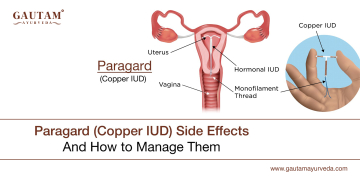If Used Consistently and Effectively, Condoms Can Prevent HIV
HIV (Human Immunodeficiency Virus) continues to be a significant public health challenge globally. Despite advancements in treatment and awareness, prevention remains a critical aspect of combating this virus. One of the most effective methods of prevention is the consistent and correct use of condoms. This blog delves into how condoms prevent HIV, the importance of their proper use, and some additional insights on related health topics, including Male Infertility in Delhi.
Understanding HIV and Its Transmission
HIV is spread by coming into touch with specific bodily fluids of an infected individual, most frequently during unprotected sexual activity. The viral infection affects the immune system, most especially the cells known as CD4 cells (T cells), which are vital in treating infection. HIV can eventually result in AIDS (Acquired Immunodeficiency Syndrome), a disease in which the immune system is significantly compromised, leaving the body vulnerable to opportunistic infections and several types of malignancies.
How Condoms Prevent HIV
Condoms are a barrier method of contraception that, when used consistently and correctly, can significantly reduce the risk of HIV transmission. Here's how:
- Barrier Protection: Condoms act as a physical barrier that prevents the exchange of bodily fluids during sexual intercourse. This includes vaginal, anal, and oral sex. By blocking the transmission of semen, vaginal fluids, blood, and other secretions, condoms effectively reduce the risk of HIV entering the body.
- Reducing Other STIs: Condoms also protect against other sexually transmitted infections (STIs). Since having an STI can increase the risk of acquiring or transmitting HIV, preventing STIs indirectly helps in HIV prevention.
- Ease of Use: Condoms are readily available, affordable, and easy to use. They are a convenient choice for many people because they don't need a prescription and can be bought over the counter at most stores.
The Importance of Consistency and Correct Usage
For condoms to be effective in preventing HIV, they must be used consistently and correctly. Inconsistent or incorrect use can compromise their effectiveness. The following guidance can be appropriately applied. Verify the Expiration Date: Before usage, always make sure to verify the condom package's expiration date. Expired condoms can be less effective and more prone to breakage.
- Store Properly: Store condoms in a cool, dry place away from direct sunlight and sharp objects to prevent damage.
- Use Water-Based Lubricants: Oil-based lubricants can weaken latex condoms, leading to breakage. Always use water-based or silicone-based lubricants.
- Appropriate Application: Ensure that the condom is inserted correctly. Pinch the tip to leave room for semen and unroll it down the length of the erect penis. After Premature ejaculation, hold the base of the condom while withdrawing to prevent it from slipping off.
- Single Use: Never reuse a condom. For every sexual activity, use a new condom. Addressing Misconceptions
Addressing Misconceptions
Despite the proven effectiveness of condoms in preventing HIV, there are still misconceptions that can hinder their use:
- Myth: Condoms Are Not Effective: When used correctly, condoms are highly effective in preventing HIV and other STIs. Correct and consistent use is essential.
- Myth: Condoms Reduce Pleasure: Advances in condom technology have led to the development of ultra-thin condoms that provide a natural feeling while still offering protection.
- Myth: Condoms Are Only for Certain Groups: HIV does not discriminate. Everyone who is sexually active should consider using condoms to protect themselves and their partners.
why choose Male Infertility in Delhi
While discussing sexual health, it is important to address related issues such as Male Infertility in Delhi. Male infertility reduces a man's chances of becoming pregnant through a female partner. It is often related to the quality and quantity of sperm. Various factors, including lifestyle, medical conditions, and environmental influences, can contribute to male infertility.
In Delhi, several clinics and healthcare providers specialize in diagnosing and treating male infertility. Advanced diagnostic tools and treatments, such as in-vitro fertilization (IVF) and intracytoplasmic sperm injection (ICSI), are available to help couples achieve their dream of parenthood. If you are experiencing issues related to Sexologist in Delhi, it is advisable to consult a specialist who can guide you through the available treatment options.
Conclusion
Condoms are a powerful tool in the fight against HIV. Their effectiveness, affordability, and ease of use make them an indispensable part of sexual health practices. However, it is crucial to use them consistently and correctly to ensure maximum protection. Additionally, addressing broader sexual health issues, such as Male Infertility in Delhi, is essential for overall well-being. By staying informed and proactive, we can significantly reduce the spread of HIV and improve reproductive health outcomes.
For personalized advice and treatment, consider consulting with experts at Gautam Ayurveda, where Dr. Inderjeet Singh Gautam and his team can guide you towards optimal health and vitality. Embracing these natural remedies can help you achieve a better health and more fulfilling life.
















1.png)



.jpg)

1.jpg)


.jpg)

.jpg)